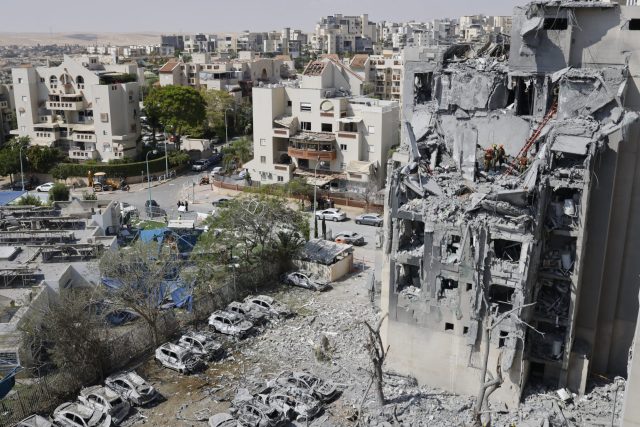Tensions continued to rise on Wednesday as Israeli forces expanded their military operations across Syria, targeting key government sites in Damascus and striking locations in the southern province of Sweida, a predominantly Druze region rocked by recent sectarian violence.
According to a Syrian interior ministry source, Israeli airstrikes hit areas near the Mazzeh military airport in Damascus in the evening, reportedly close to munitions depots. Earlier in the day, Syrian authorities said three people had been killed and over 30 injured in similar attacks on central government facilities.
The Israeli military said its campaign was aimed at preventing further violence against the Druze minority in southern Syria and deterring the presence of Islamist-led Syrian government forces near the Israeli-occupied Golan Heights.
Chief of Staff Eyal Zamir, during a visit to Israeli positions on the Golan frontier, stated that military personnel were “acting with responsibility, restraint and sound judgment” despite the escalation. Defence Minister Israel Katz took a firmer tone, warning that Syrian forces must “fully withdraw” from Sweida or face continued strikes. “The signals to Damascus are over — now come the painful blows,” he posted on social media alongside footage of an explosion in Damascus.
Syrian state media confirmed that Israel struck the army headquarters complex in Damascus, damaging part of the four-storey building. Witnesses also reported blasts near the presidential palace, which Israel claimed housed military targets.
In the south, the violence has been particularly intense. Israel conducted drone strikes and bombings targeting government vehicles and tanks in Sweida. The Syrian Observatory for Human Rights reported over 300 deaths since Sunday, including 165 government troops and 27 Druze civilians allegedly executed by state security forces.
The European Union condemned the Israeli air campaign, urging an immediate halt to the strikes.
EU spokesperson Anouar El Anouni called on Israel to “cease its strikes on Syrian territory, including on key institutions in Damascus,” warning of the risk to civilians and Syria’s transitional stability.
He also pressed Syrian authorities to de-escalate the situation in Sweida.
UN Secretary-General António Guterres joined in the condemnation, while U.S. Secretary of State Marco Rubio announced that a tentative agreement had been reached to bring an end to hostilities. “We have agreed on specific steps that will bring this troubling and horrifying situation to an end tonight,” he said in a statement posted to social media.
Despite these calls for calm, the situation remains volatile. Israeli troops reportedly deployed tear gas on the Golan frontier to deter dozens of Druze demonstrators attempting to cross into Syria.
While Israel has made limited contact with Syria’s new Islamist-led administration under Ahmed al-Sharaa, it remains wary. The Israeli government has cited security concerns, including the transfer of weapons to hostile actors, as justification for ongoing operations, which have included hundreds of strikes since December.
Syria has condemned the strikes as a violation of its sovereignty and reaffirmed its right to defend its territory.







